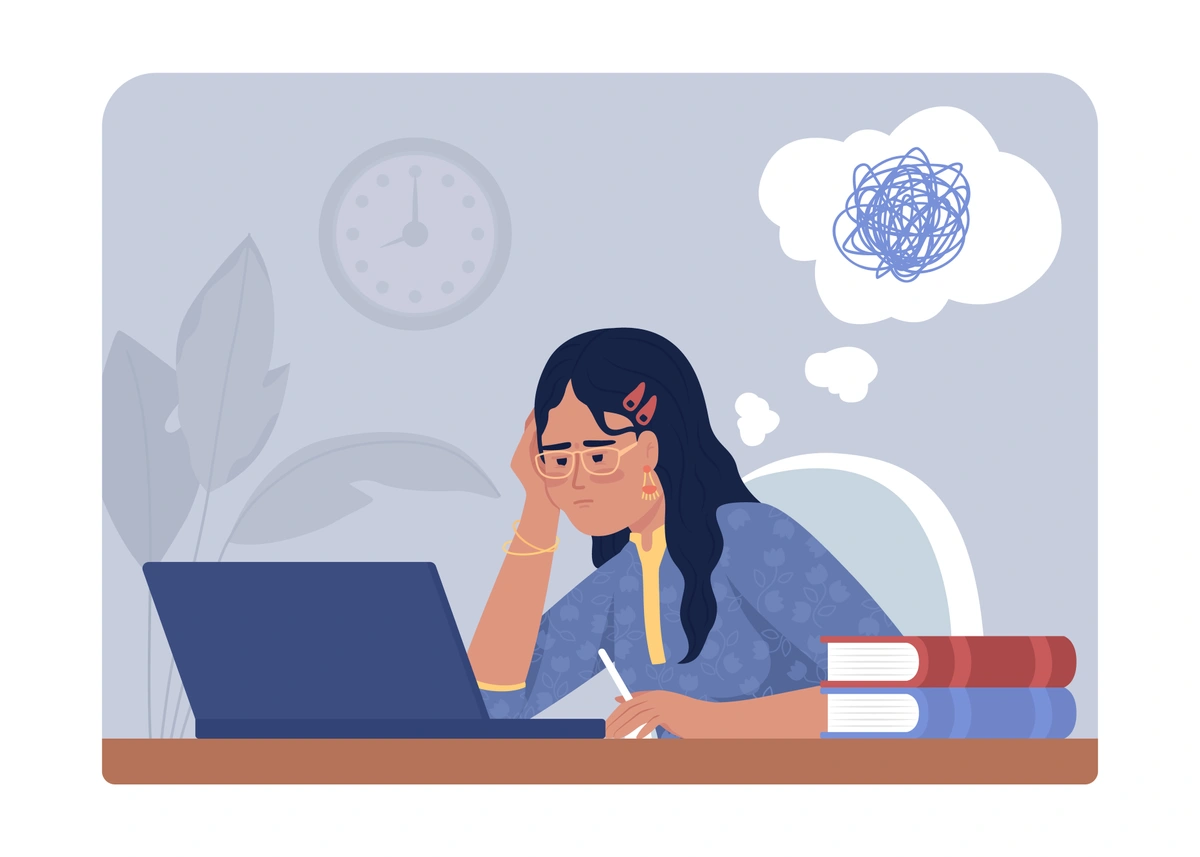Attention-Deficit/Hyperactivity Disorder (ADHD) - Inattentive presentation

ADHD - Inattentive Type
Nearly 4.4% of the general population has ADHD, and the condition is highly treatable in people of all ages. The diagnosis of ADHD - Inattentive presentation usually exists throughout a person’s life with symptoms beginning in childhood. Often, the symptoms may not have been acknowledged in early life.
Many individuals with ADHD are not diagnosed until adulthood. At times, the condition can be overlooked without an assessment tool like MindMetrix. Although ADHD symptoms persist over time, they may look different as people move through life.
What it looks like
There are two major components of ADHD - Inattentive type: inattention and distractibility, which can create challenges with “executive functioning,” a term psychologists use to describe someone’s ability to plan, prioritize, and carry out actions. People who are inattentive may report that they frequently lose items such as their cell phone or credit cards, and that they arrive late to meetings or forget to pick up their children from soccer practice. While most people have these problems occasionally, people with ADHD tend to have them daily. Behaviors stemming from inattention and distractibility can make life really hard for people in their careers as well as in their interactions with friends and family.
Inattention can also look like
Trouble staying focused on a task
Being easily distracted
Trouble staying organized or keeping on track with deadlines
Missing details or making frequent mistakes on tasks or projects while moving fast
Not following through or paying close attention to instructions
Forgetting to do routine tasks such as paying bills or making/attending appointments
Delaying or avoiding tasks that require long periods of mental focus or detailed, systematic work such as filling out forms
Appearing as though one is not listening when someone is speaking to them
Unique challenges
Many people with ADHD - Inattentive presentation may have blamed themselves for their behaviors, thinking that they “should have” remembered to do important tasks or should not have lost their phone (again!). They may have regrets about not showing up on time to a family event or forgetting that they were supposed to bring the dessert.
The right treatment can give a degree of control in one’s life that they might not have had access to in the past: people with ADHD who have their symptoms managed are no longer victims of their own inattention. Instead, they may become leaders directing everyone else.
Untreated ADHD - Inattentive presentation
Many believe that the ADHD brain has a deficiency in dopamine; a type of neurotransmitter that sends chemical messages that control pleasure, planning, motivation and a lot more. All humans need dopamine to be the optimal version of ourselves, and when we have less of it, we often find other ways to get dopamine. Not all ways of increasing dopamine are safe or helpful for us, for example substance abuse can cause an increase in dopamine.
It’s worth pointing out that when left untreated, ‘ADHD - Inattentive type’ can increase a person’s likelihood of experiencing traffic accidents & violations, problems with work, and relationship challenges. Luckily, there are many ways to increase dopamine without putting ourselves in danger or at risk, such as engaging in pleasurable activities, connecting with others, having a balanced diet/lifestyle, and more.
Outlook
While living with ADHD can present unique obstacles, treatment can dramatically improve one’s quality of life. The majority of people who are properly diagnosed and treated with the newest medications observe transformative results. In fact, people who have received treatment for their ADHD often say that it is one of the best decisions they’ve ever made. With treatment, people with ADHD tend to be able to harness their strengths of being fearless and action oriented, making them excellent entrepreneurs and natural leaders.
In good company
Many prominent people reportedly have ADHD, such as Olympic star Simone Biles, singer Justin Timberlake, entrepreneur Richard Branson, athlete Michael Jordan, and many others. Individuals with ADHD are definitely not alone in this experience!
The current thinking on what causes ADHD
Why do some people have ADHD while others do not? No one knows for sure what causes ADHD, but most experts believe that it is brain-based and largely driven by genetics. ADHD tends to run in families, and if an individual is diagnosed with ADHD, it is likely that someone else they are closely related to has it as well. Brain scientists have determined that ADHD brains have size and connectivity differences compared to non-ADHD brains.
There is still some disagreement amongst scientists as to whether environmental factors can contribute to ADHD. For instance, mothers who smoke are more likely to have children with ADHD; but, many children with ADHD are born to mothers who have never used tobacco.